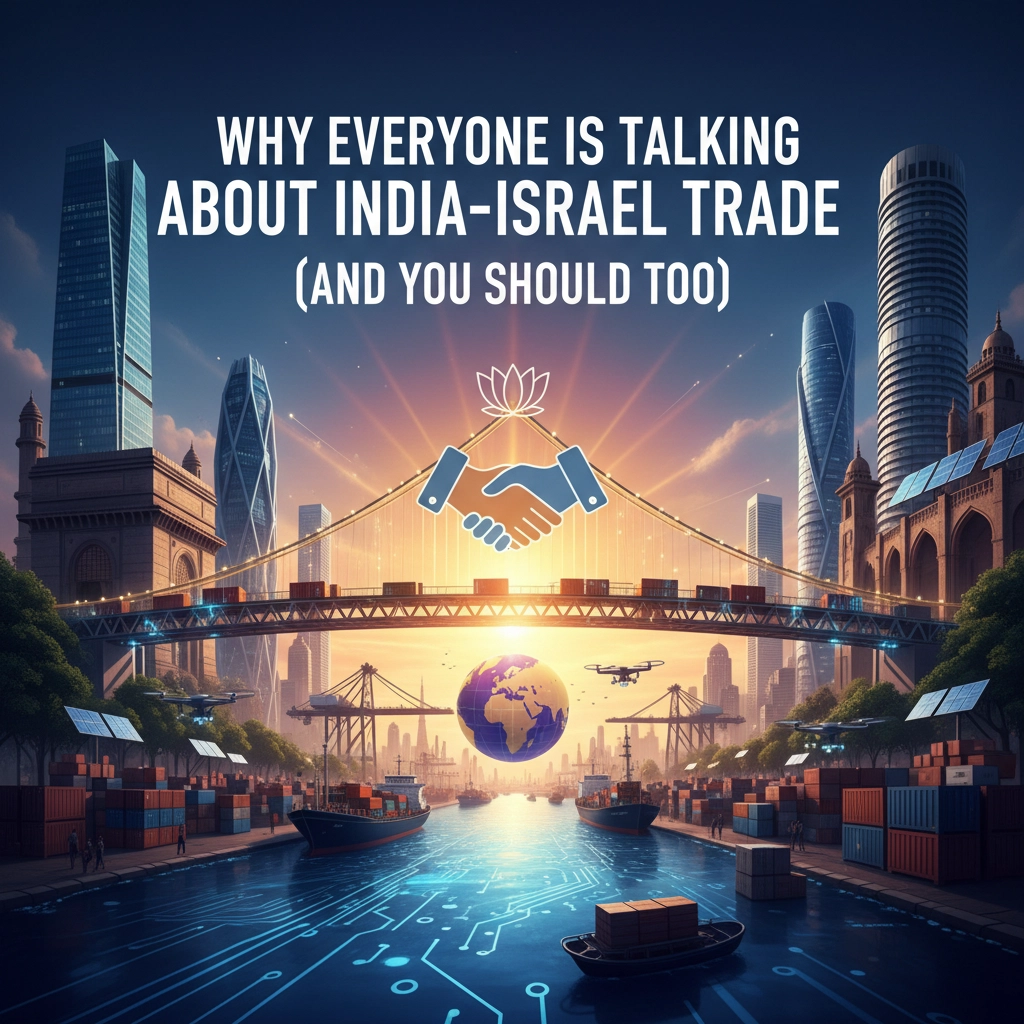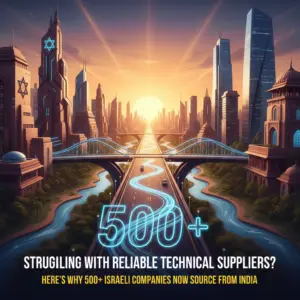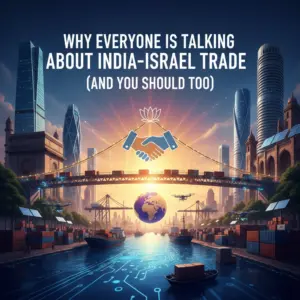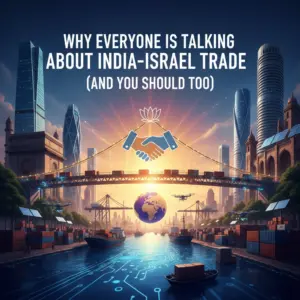The business world is buzzing about India-Israel trade, and for good reason. What started as a defense partnership has exploded into one of the most dynamic economic relationships of our time. In September 2025, these two nations signed a game-changing Bilateral Investment Agreement, and they're not stopping there. A Free Trade Agreement is on the horizon, promising to unlock billions in new opportunities.
If you're in the sourcing business, this is your wake-up call. The India-Israel corridor is reshaping how companies think about supply chains, technology transfer, and strategic partnerships.
Historic Agreements That Change Everything
On September 8, 2025, India and Israel made history. They signed a Bilateral Investment Agreement that goes way beyond typical trade deals. This isn't just paperwork – it's Israel becoming the first OECD member to adopt India's new investment treaty model. That's a big deal because it shows India's growing confidence on the global stage.
What does this mean for businesses? The agreement creates rock-solid protections for investors. We're talking about safeguards against unfair treatment, transparent dispute resolution through international arbitration, and smooth mechanisms for moving funds between countries. For companies looking to expand their sourcing or manufacturing operations, this removes a ton of uncertainty.

The momentum didn't stop with the signing ceremony. Israel sent its largest-ever business delegation to India – over 100 companies holding more than 600 business meetings. When you see that level of corporate commitment, you know something big is happening.
And here's the kicker: they're already talking about a comprehensive Free Trade Agreement for 2025. When that happens, trade barriers will drop even further, making it easier and cheaper for companies to do business between these two countries.
The Numbers Are Eye-Opening
Let's talk money. Trade between India and Israel hit around $4-5 billion in 2024, and that's not even counting all the military sales. Break it down: $2.5 billion in Israeli exports, $1 billion in diamond trade, and $1.5 billion flowing from India to Israel.
But here's what's really interesting – mutual investments currently sit at about $800 million. That might sound modest, but industry insiders expect this figure to explode following the new agreements. When investment protection improves and trade barriers fall, capital flows follow.
For over a decade, India has been the biggest buyer of Israeli weapons. Defense cooperation remains the backbone of their relationship, but smart businesses are looking beyond military contracts. The real opportunity lies in Israel's world-class expertise in water technology, cybersecurity, agriculture, artificial intelligence, renewable energy, and digital health.
Technology Transfer Is the Real Game Changer
Here's where things get really exciting for sourcing professionals. India isn't just buying finished products from Israel – they're co-producing Israeli weapons in factories across the country. This level of technology transfer is rare and valuable.

Israeli Minister of Economy and Industry Nir Barkat put it perfectly: "The largest business delegation ever sent from Israel is proof of our commitment to deepening economic ties, expanding Israeli exports, and opening the Indian market to groundbreaking Israeli technologies."
Think about what this means for your supply chain. Indian manufacturers are gaining access to cutting-edge Israeli technologies while Israeli companies get cost-effective production capabilities. It's a win-win that creates opportunities for everyone in between.
The collaboration extends far beyond defense. Israeli expertise in water management is helping Indian companies develop better irrigation systems. Israeli cybersecurity firms are working with Indian IT companies to create stronger digital solutions. In agriculture, Israeli precision farming techniques are being adapted for Indian conditions and markets.
Strategic Implications for Global Trade
This partnership represents more than just economic cooperation – it's a significant geopolitical alignment. India's External Affairs Minister described Israel as "a country with which we have a strong record of cooperation in national security" and noted that Israel "has stood by us at different moments when our national security was under threat."
For businesses, this political stability translates into long-term predictability. When two countries have strong strategic ties, trade relationships tend to be more stable and reliable. The Bilateral Investment Agreement provides additional confidence by ensuring minimum standards of treatment and independent dispute resolution.

Major Indian business groups like Tata, Nasscom, and GMR are already engaging with Israeli companies. When you see these industrial giants making moves, it signals serious corporate commitment to the relationship.
Navigating the Controversies
Of course, it's not all smooth sailing. The relationship has faced criticism, particularly around arms trade during the Gaza conflict. Since October 2023, Indian companies have sent combat drones, rockets, and explosives to help replenish Israeli military supplies.
When questioned about continued military ties amid international concerns, India's foreign ministry justified arms deals based on "national interest." They maintain that export decisions are "guided by our national interest and by our commitments to various regimes."
For sourcing professionals, this controversy highlights the importance of understanding the geopolitical context of your supply chains. Companies need to be aware of how their sourcing decisions might be perceived by different stakeholders.
What's Coming Next
India is planning to lead a high-level business delegation to Israel in 2025, focusing on advanced technology collaborations in water management, healthcare, and agriculture. This isn't just diplomatic theater – it's serious business development.
The partnership reflects India's pragmatic approach to foreign policy. They're prioritizing economic growth and technological advancement while maintaining strategic autonomy. For Israel, India represents access to one of the world's fastest-growing markets with a population of over 1.4 billion.

Why This Matters for Your Business
Here's the bottom line: India-Israel trade is creating an economic corridor that could influence regional trade patterns for decades. The combination of India's manufacturing capabilities and cost advantages with Israel's technological expertise creates unique opportunities for sourcing professionals.
Whether you're looking for tech components, agricultural equipment, water management solutions, or cybersecurity products, this partnership is opening new doors. The investment protections and trade facilitation measures make it easier to explore these opportunities with confidence.
The smart money is paying attention to India-Israel trade because it represents more than just bilateral cooperation – it's a model for how emerging economies can partner with developed nations to create mutual benefits. As these agreements take full effect, expect to see more companies rethinking their sourcing strategies to take advantage of this dynamic relationship.
For businesses willing to look beyond traditional trade routes, the India-Israel corridor offers compelling opportunities. The question isn't whether this partnership will succeed – it's whether you'll be positioned to benefit from it.




